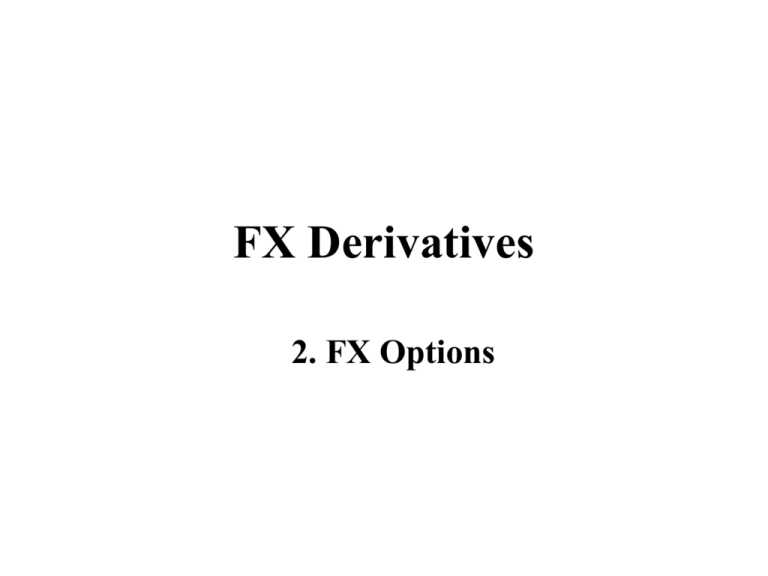In the realm of financial markets, derivatives play a pivotal role in mitigating risks, enhancing returns, and facilitating sophisticated trading strategies. While they may seem like complex financial instruments, understanding their nature and workings is essential for any aspiring forex trader. This comprehensive guide delves into the realm of derivatives, specifically in the context of forex trading, providing valuable insights into their types, mechanics, and strategic applications.

Image: studylib.net
What are Derivatives?
A derivative is a financial contract that derives its value from an underlying asset, such as a currency pair in forex trading. Unlike stocks or bonds that represent ownership in a company, derivatives provide traders with the ability to speculate on the future price movements of an asset without actually owning it. This flexibility allows for both hedging and speculative strategies, depending on the trader’s risk appetite and investment goals.
Types of Forex Derivatives
The forex market offers a diverse range of derivative contracts tailored to various trading objectives. The most common types of forex derivatives include:
-
Forwards and Futures: These are standardized contracts that obligate the buyer and seller to exchange a specific currency pair at a predetermined price on a future date. They are typically used for hedging against price fluctuations and for locking in future exchange rates.
-
Options: Unlike forwards and futures, options grant the buyer the right, but not the obligation, to buy (call option) or sell (put option) a certain currency pair at a specified price before a fixed expiration date. This flexibility allows traders to speculate on price movements without committing to a binding trade.
-
Currency Swaps: Currency swaps involve the exchange of cash flows between two parties in different currencies over a predefined period. They are typically used for managing foreign exchange risks or for exploiting interest rate differentials between countries.
Advantages of Using Derivatives in Forex Trading
-
Risk Management: Derivatives serve as valuable hedging tools, allowing traders to reduce their exposure to adverse price movements. By entering into offsetting derivative positions, traders can mitigate potential losses in case the market moves against their expectations.
-
Increased Leverage: Derivatives provide traders with the ability to control a larger position size with a minimal upfront investment. This leverage can amplify potential returns, but it also magnifies potential losses if the market moves unfavorably.
-
Speculative Opportunities: Derivatives enable traders to speculate on future price movements of currencies, regardless of whether they own the underlying asset. This speculative aspect makes derivatives appealing for traders seeking profit opportunities beyond traditional buy-and-hold strategies.
-
Greater Liquidity: The derivatives market offers enhanced liquidity compared to the underlying asset. This increased liquidity allows for swift execution of trades and reduces the risk of slippage, where the actual execution price differs significantly from the expected price.

Image: blog.dhan.co
Derivatives Meaning With Reference To Forex
Conclusion
Derivatives play a crucial role in the forex market, empowering traders with a versatile set of tools for managing risks, enhancing returns, and exploring speculative opportunities. Whether you are a seasoned professional or a beginner entering the world of forex trading, understanding the concepts and applications of derivatives is paramount. By leveraging the insights provided in this comprehensive guide, you can harness the power of these financial instruments and make informed decisions that drive successful trading outcomes.






